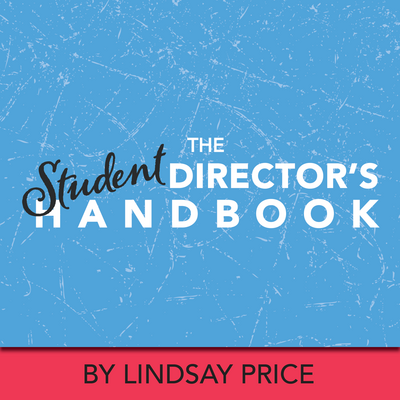The Dread Pirate Sadie: All the pirates, sword fights, and unforgettable characters - now in a competition-length version!
The School Play Shopping List
You’re shopping for your next play. The stack of catalogues is to your left. There are seven open tabs on your computer from various publishing companies. Your eyes are bleary and if you have to read one more peppy description (only to be disappointed by the sample pages) you may run screaming from the room.
High School productions, more than any other scenario, can have a pretty rigid criteria to follow. Maybe it has to fit in a classroom. Or it has to accommodate a variety of acting abilities and flexible casting. It has to fit a specific time limit. It has to be staged with just a couple of cubes. Maybe your play needs to include all of the above. The search gets less and less fun as play after play fails to fit. How do you make choosing a play a simple, straightforward process?
The School Play Shopping List: A one-stop shop to make your next play search easy as pie
Before you start looking at scripts, follow the recipe below and create a shopping list of ingredients. Identify the elements that will turn your play shopping experience from sweet to sour. This way, you never spend time on plays that were never going to fit your situation in the first place.
Base Ingredients
Start with the elements that will not change: the constraints of your space, the general size of your cast, budget, and your assets. You can eliminate a lot of plays just by mapping out the basics.
General Cast Size:
- Are you looking for a small (5 and under), medium (6-12), large (13-20) extra large (over 20) or maximum (everyone who auditions) cast size?
Shape of the Space:
- Do you perform in a classroom, gymnasium, cafeteria, Proscenium stage, thrust stage, black box theatre?
- Do you have wing space, fly space or an orchestra pit?
Budget size for sets, costumes, props:
- Do you have a non-existent, small, medium, or large budget?
Access
Do you have access to:
- cubes, risers, flats
- stock furniture pieces/ unique hard to find pieces
- costume closet
- students for set construction, costume building, prop gathering
- adults for set construction, costume building, prop gathering
- stage management, lighting operator, sound operator
Primary Protein
Think about the subject matter. Just as a beef dish could never be the same as a tofu dish, a comedy is going to be a different experience than drama. Hone in on the direction of your subject matter before you start reading plays. If you don’t, you could get bogged down in seconds. You may have a wide range of likes, maybe you like all kinds of theatre! But if you’re in a time crunch, a choice has to be made.
If you’re not sure where to begin, start with questions:
What did you do last year?
Or if it’s your first year, what was done last year? What was the response to the play last year? Do you want to swing in the opposite direction, or stay in the same wheelhouse?What do you like?
Never choose a play that irritates or annoys you. You have to spend a lot of time with it! There’s nothing worse than rehearsing a play you hate for months.What don’t you like?
Theatre is personal and subjective. It doesn’t hurt to write down subject matter that doesn’t appeal to you.Does the play need to fit into the curriculum?
Does the subject matter have to address specific curriculum strands? Try adaptations and issue-based plays.What’s the status of your drama club?
Is this a rebuilding year? Large cast comedies are a great draw to build drama club numbers. Do you have a lot of seniors? Think of a meaty drama.What do your students want to do?
It never hurts to poll your drama club or class to find out what kind of plays they’d like to perform. You might want to assign the reading and evaluating to seniors. There’s a read/eval form with the Printable Check List at the end of this post.Who is the audience?
Are you doing a family show? A show for feeder schools? For your high school? The audience can play a huge part in play selection.What is the purpose of the production?
Always have a purpose. It will really help you hone in on subject matter. Are you rebuilding? Is this a fund-raiser? Are you presenting a play on a specific issue? Are you competing? Is it just to do something fun? There is no wrong answer here, but knowing the purpose can help narrow the possibilities.
Flavour Enhancers
You can take chicken and prepare it a thousand different ways: fried, grilled, stir-fry, poached, and so on. Once you’ve defined a subject, think about a specific genre.
- Comedy?
- Drama?
- Kitchen sink?
- Fantasy?
- Absurd?
- Abstract and poetic?
- Gritty and real?
- Fable?
- Classical?
- Futuristic?
- Musical?
And just like defining what you like and don’t like in subject matter, do the same for genre.
* My favourite genre of theatre is………….
* My least favourite genre of theatre is………….
Rank the above from your most favourite to your least favourite.
Finishing Touches
These are the questions that don’t fit in the above categories, but need to be addressed because they’re specific to your situation.
- Are there rules to consider? (e.g. Does your competition have a time limit?)
- What can’t be in my play? (e.g. Language. Is there a policy limiting certain words?)
- Is there an actor you want to feature?
- What’s the primary gender of your audition pool?
- How long is the rehearsal period?
When do I get to read plays?
Right now! Based on what you’ve discovered you should have a specific profile of your group and the kind of play you’re looking for. It’s one thing to wade through a thousand comedies. It’s another thing to look for a one-act large cast abstract comedy.
I would suggest using web searches over flipping through catalogues. You’re going to be able to do an advanced search online. For example on the Theatrefolk Search page you’re able to filter out plays by grade, length, gender breakdown, cast size, and genre.
NOTE: Need some help narrowing down your options? Try Theatrefolk's free Play Concierge Service! Answer a few quick questions about what you're looking for and we'll send you a handpicked list of perusal plays chosen specifically for you!
BUT WAIT…
What happens if you do all this and you don’t find a play? Or you find a play that doesn’t fit the recipe? Well, unfortunately play choosing is not an exact science. You can come up with a formula and there will always be an anomaly. But following this formula will never be a lost cause. Look at all the information you’ve gathered about your interests, your theatre group, and what you can access – don’t lose it! Knowing who you are and what you have is important. It can help you crystallize what you might need or want in the future.
All the best with your search. Happy reading.
Related Articles
The Student Director's Handbook
by Lindsay Price
Help students take their show from first audition to opening night with The Student Director’s Handbook. This easy-to-use ebook is full of guidelines, tips and templates designed to help students create a vision, circumvent problems and organize rehearsals on their way to a successful production.
The Rehearsal Companion
by Kerry Hishon
You’ve chosen the play, paid the royalties, done the script analysis, held your auditions, and cast the show. Tomorrow is the first rehearsal. Are you ready? Really ready? The Rehearsal Companion can help!





